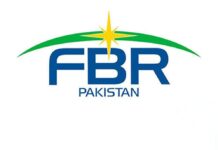ISLAMABAD: The national standards setting agency of the country, Pakistan Standards and Quality Control Authority (PSQCA), is facing a new challenge as the majority of its labs and departments are currently not authorised to execute operations.
according to details, seven out of nine labs and technical offices of the PSQCA do not have valid operating licenses. In this regard, details posted at the website of the Pakistan National Accreditation Council (PNAC) show that only the food testing laboratory in Karachi and the Technical Services Centre (TSC) in Lahore have licences valid up to May 2022 and November 2021, respectively.
Entities with expired licenses include the Sugar Testing Lab, Quality Control Centre (QCC), Water Testing Lab, Oil and Fat Testing Lab, Microbiological Laboratory, Building Material Testing Lab, PSQCA, Standards Development Centre (SDC) and Conformity Assessment (CAN).
Incidentally, the functions of all these labs are not limited to maintaining standards of industrial products but also includes consumer as well as the edible items.
The PSQCA Quality Control Centre (QCC) has not had a valid operating license since July 2019; however it continues to work as a multifunctional testing lab and offers services in the field of food, materials, papers and textiles, microbiology and water.
It is currently providing testing facilities against 120 samples, including animal feed, biscuits, bleaching agents, cement, cold drinks, cooking oil, fertiliser, dry battery cell, electric fans, electric iron, and electric motors.
While responding to the query, a senior official of the Ministry of Science and Technology said that around Rs16 million was needed for the accreditation of labs but the top management of the authority has yet to move a summary in this regard.
Interestingly, the regulatory body has been issuing the tests reports from the above mentioned labs despite suspension of accreditation for almost two years.
According to an official at the PSQCA, the accreditation of key labs was suspended due to non-compliance of mandatory approval from international bodies which required participation in certification programmes.























